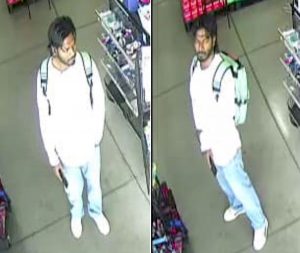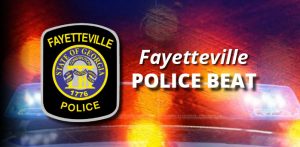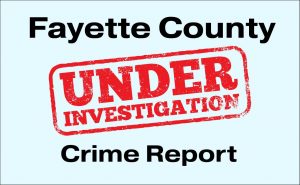Criminals never seem to tire of finding new ways to rip people off. An approach being reported by Fayetteville Police is one where homeless people in business attire are being used here and across metro Atlanta to cash fraudulent company checks at local banks.
The check fraud essentially works like this, said Det. Jim Whitlow. A homeless man or another participant, called a “check runner,” will be recruited at a homeless shelter or another location for the work somewhere in the metro Atlanta area. The person that will be driving him to the various banks will buy him a suit, get him a haircut and manicure and furnish him with identification and sometimes a fake credit card in his name, Whitlow said.
The “driver” will then take the man to designated locations, usually banks, where the man will go in with a company check made out to him. The check is fraudulent, having been stolen and computer-altered by someone higher up in the criminal organization. If the teller cashes the check, the man leaves the bank and walks a few blocks to the location where the driver is waiting.
The process is then repeated, Whitlow said, adding that the runner can make $50-100 per transaction with the driver making $200 or more. Officers across metro Atlanta are not aware of the transaction unless notified by the bank. Since May this type of fraud has occurred more than 30 times in Fayetteville with several similar instances in Peachtree City during the last year, according to Capt. Rosanna Dove.
But the check fraud attempts are not always successful, Whitlow said. Such was the case last week when Acworth resident Aron Kuehne acting as the runner was observed and arrested in connection with driver Ashford Daniels and another man, Arzarius King, both of Atlanta, police said. They were apprehended near the Fayette Pavilion as they attempted to leave the area without their runner. Whitlow observed that it is often not the case that the driver is nabbed along with the runner.
“The driver couldn’t care less if the runner gets caught,” Whitlow said, adding that they are quite willing to leave the check-cashing runner behind if they spot any trouble. After all, the runner does not know the name or any other relevant information about the driver or anyone else in the organization.
Further up the organizational ladder, at least with the larger groups, there will be someone doing surveillance (and he gets a cut of the proceeds) on the driver, with the driver watching the runner. Though no one knows how many organizations of this type are currently working in metro Atlanta, Whitlow said there are likely a minimum of 20 checks per day with the one known group, and every group has a head man who is making the greatest percentage of the haul.
But it is the way the organizations get the company checks in the first place, essentially the front-end of the operation, that also causes concern and is to a significant extent preventable, Whitlow said.
Though the methodology is variable, the primary way of securing company checks to be altered and reproduced is by stealing them from mailboxes. Whether a locked mailbox or not, since thieves can secure copies of keys used by postal carriers, the outgoing mail in the box will be removed and opened at another location. Live company checks will be removed from the envelopes, scanned and then replaced in the envelope and deposited into the mail system. Unknown to the company is that the scanned check has been computer-altered in one or more of a variety of ways so that potentially multiple copies of it can be made out to the runners who then take them to the bank to be cashed.
So what can be done to offset the increasingly sophisticated organizations whose members do not know each other and by whose techniques checks can sometimes be successfully computer-altered? Whitlow had several suggestions.
The idea, whether as an individual or a business, is to protect yourself, said Whitlow. This means monitoring your bank account daily, whether on the phone or on-line. Beyond that, try to mail at the post office only, since thieves target both residential and business mailboxes.
Whitlow stressed that people should never put mail in their mailbox at night and put the red flag up.
“Criminals are looking at mailboxes, and trash, at 2 a.m. You’re asleep but they are awake and working,” he said, adding that changes in postal procedure in recent years no longer require that the flag be raised for outgoing mail.
Whitlow also recommended, if possible, to get to know the route carrier and the approximate time of daily delivery so that, in the case of homebound people, outgoing mail can be put directly in the hands of the mail carrier.
But these days, the tellers at some banks are giving company checks additional scrutiny. And it is that scrutiny that is helping give police a leg-up on being able to apprehend some of the runners and, hopefully, other members of the organization higher up the food-chain.
Ethan Allen has hired additional security for the visit. (and additional cleaning crews).












Leave a Comment
You must be logged in to post a comment.